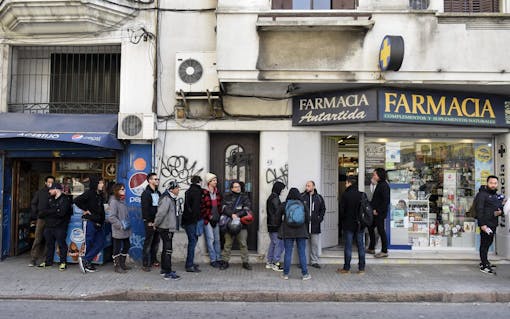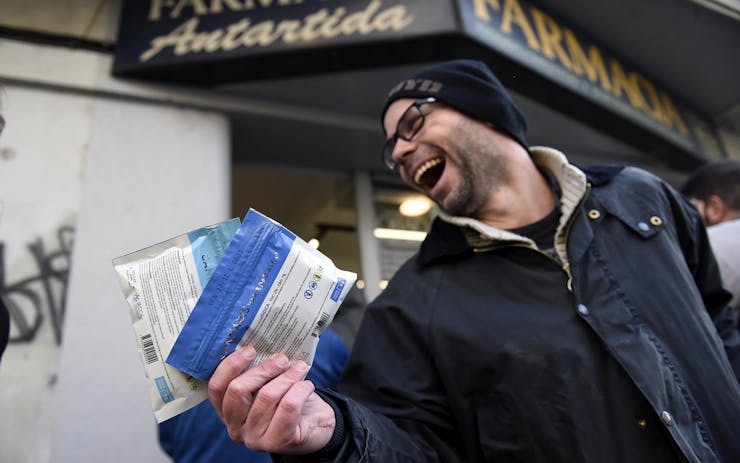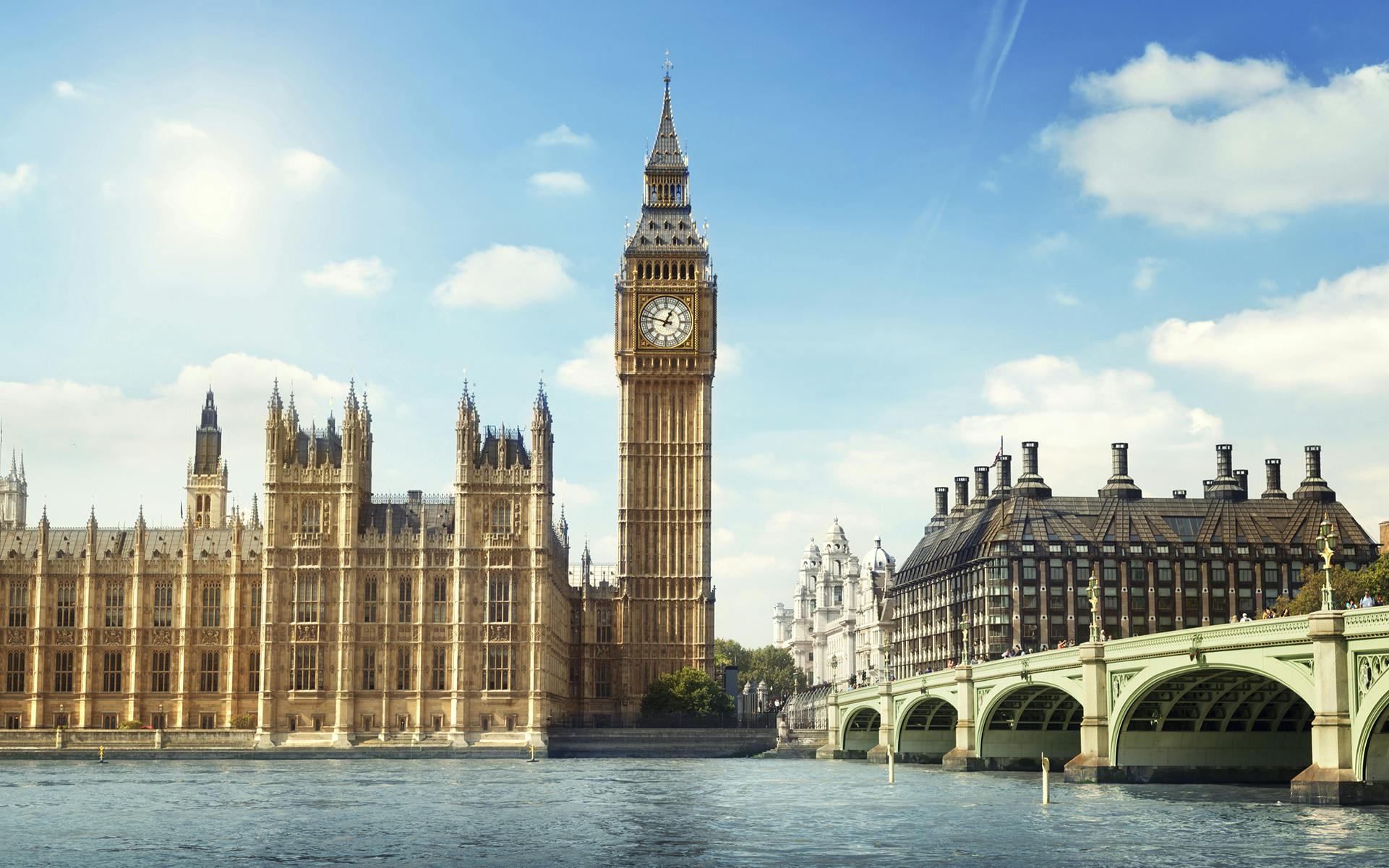MONTEVIDEO, Uruguay (AP) — Marijuana aficionados lined up at pharmacies across Uruguay on Wednesday to be among the first in the South American nation to legally buy pot as a law regulating its sale took full effect.
Customers sniffed pungent green buds and grinned as they showed off blue-and-white envelopes containing the plant, which is now available as part a 2013 measure that made Uruguay the first nation to legalize a cannabis market covering the entire chain from plants to purchase.
Patients were greeted with low prices (about $1.30 per gram, compared to $5-15 grams in legal American states) but limited selection and low potency. Only two strains are initially available: One is an indica, called Alpha I, with 2% THC and 7% CBD; the other is a sativa, Beta I, with 2% THC and 6% CBD.
Queues form outside pharmacies after Uruguay has legalised both the sale and the production of cannabis https://t.co/i1L1WNqPKJpic.twitter.com/gjcSSsaDDg
— Ruptly (@Ruptly) July 20, 2017
Santiago Pinatares, a 35-year-old construction worker, braved freezing temperatures in the capital, Montevideo, as he waited outside one of the 16 pharmacies authorized to sell marijuana. He said he has been smoking cannabis since age 14 but had no choice but to buy on the black market until now.
“To be able to buy it legally is a huge breakthrough,” he told The Associated Press. “Uruguay is at the forefront of the world on this.”
Some customers declined to comment saying they didn’t want their families or employers to know they were buying marijuana.
Authorities say nearly 5,000 people have registered as consumers allowing them to buy up to 40 grams per month using fingerprint recognition. About two-thirds of them live in Montevideo.
90 cents of each $1.30 gram goes to the two businesses chosen to cultivate marijuana.
The rest is split between the pharmacies and the government, which will use its share to fund prevention programs. The marijuana comes in packages emblazoned with a seal of authenticity and warnings about the drug’s effects.

People line up outside a pharmacy selling legal marijuana in downtown Montevideo, Uruguay, Wednesday, July 19, 2017. (AP Photo/Matilde Campodonico)
Uruguay became the first country to regulate a national marijuana marketplace in an effort to fight rising homicide and crime rates associated with drug trafficking. The law also lets licensed individuals grow marijuana plants and form clubs.
The country’s marijuana plan was widely applauded globally and seen as going beyond marijuana legislation in the U.S. states of Colorado and Washington, but polls showed that most Uruguayans opposed it.
Pharmacies in Uruguay start selling marijuana – first country in the world to legalize pot from production to sale https://t.co/5c9uz9HnNcpic.twitter.com/aciKNzoV1n
— AFP news agency (@AFP) July 19, 2017
Most of the country’s estimated 1,200 pharmacies also decided not to register to sell, stoking a debate over how the drug should be distributed. Experts attributed delays in the implementation of the pioneering plan to the fact that no other country had attempted such an ambitious endeavor.
“There was a lot of hard work to finally come to this day,” drug czar Diego Olivera said. “It is a challenging and complex project, and today we have taken a step forward.”
A number of prominent legalization advocates marked the day with tweeted congratulatory notes:
Cannabis is now on sale in Uruguay. A great moment for sensible drug policy & a fantastic example for the world https://t.co/gxiUr2RgcD
— Richard Branson (@richardbranson) July 20, 2017
While a few others, including author Radley Balko, called out the New York Times for deploying outdated verbiage and assumptions in its headline:
Nonsense headline. https://t.co/kXbkC9Iplb
— Radley Balko (@radleybalko) July 20, 2017
Leafly Staff contributed to this report.






